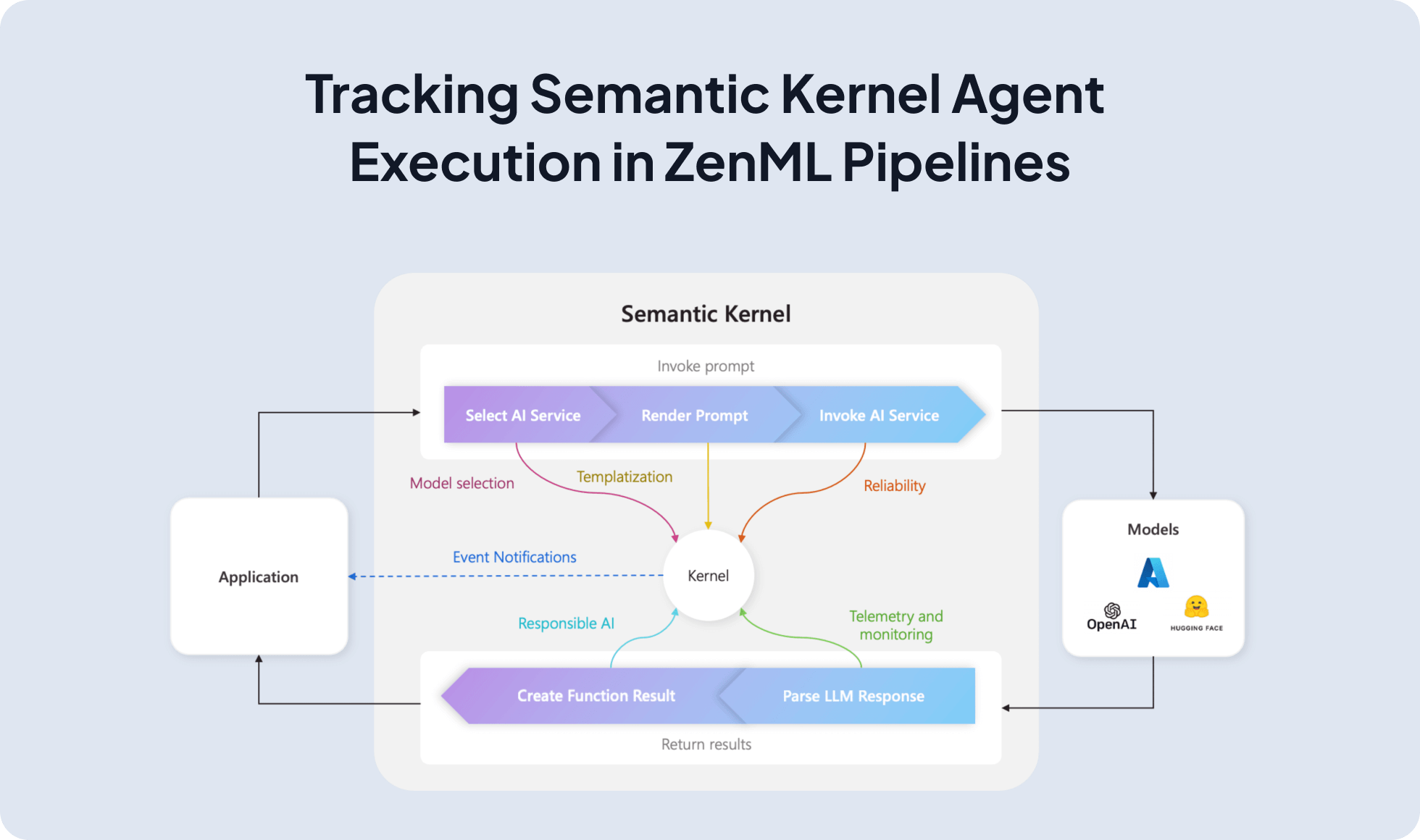Microsoft Semantic Kernel integrated with ZenML
Semantic Kernel lets you build plugin-based agents using @kernel_function, auto function calling, and async chat with OpenAI; integrating it with ZenML runs those agents inside reproducible pipelines with artifact lineage, observability, and a smooth path from notebooks to production.
Features with ZenML
- Function-calling orchestration. Execute SK agents with automatic function calling inside versioned ZenML pipelines.
- Message and tool lineage. Track user prompts, tool invocations, and responses as artifacts for audit and replay.
- Async-first execution. Run async chat workflows cleanly inside steps with proper event-loop handling.
- Evaluation ready. Add post-run checks to score response quality, tool accuracy, latency, or cost.
- Portable deployment. Move the same agent pipeline from local to Kubernetes or Airflow without code changes.

Main Features
- Plugin-based architecture. Build skills with
@kernel_function and compose them as plugins. - Automatic function calling. Let the model choose and call functions when needed.
- Async chat completion. Stream or await chat responses with OpenAI-backed connectors.
How to use ZenML with
Semantic Kernel
from zenml import ExternalArtifact, pipeline, step
from semantic_kernel_agent import kernel
import asyncio
from semantic_kernel.connectors.ai.function_choice_behavior import FunctionChoiceBehavior
from semantic_kernel.connectors.ai.open_ai.prompt_execution_settings.open_ai_prompt_execution_settings import (
OpenAIChatPromptExecutionSettings,
)
from semantic_kernel.contents.chat_history import ChatHistory
@step
def run_semantic_kernel(query: str) -> str:
async def _run():
chat = kernel.get_service("openai-chat")
history = ChatHistory()
history.add_user_message(query)
settings = OpenAIChatPromptExecutionSettings()
settings.function_choice_behavior = FunctionChoiceBehavior.Auto()
resp = await chat.get_chat_message_content(
chat_history=history, settings=settings, kernel=kernel
)
return str(getattr(resp, "content", resp))
return asyncio.run(_run())
@pipeline
def semantic_kernel_agent_pipeline() -> str:
q = ExternalArtifact(value="What is the weather in Tokyo?")
return run_semantic_kernel(q.value)
if __name__ == "__main__":
print(semantic_kernel_agent_pipeline())
Additional Resources
ZenML Agent Framework Integrations (GitHub)
ZenML Documentation
Semantic Kernel Documentation



